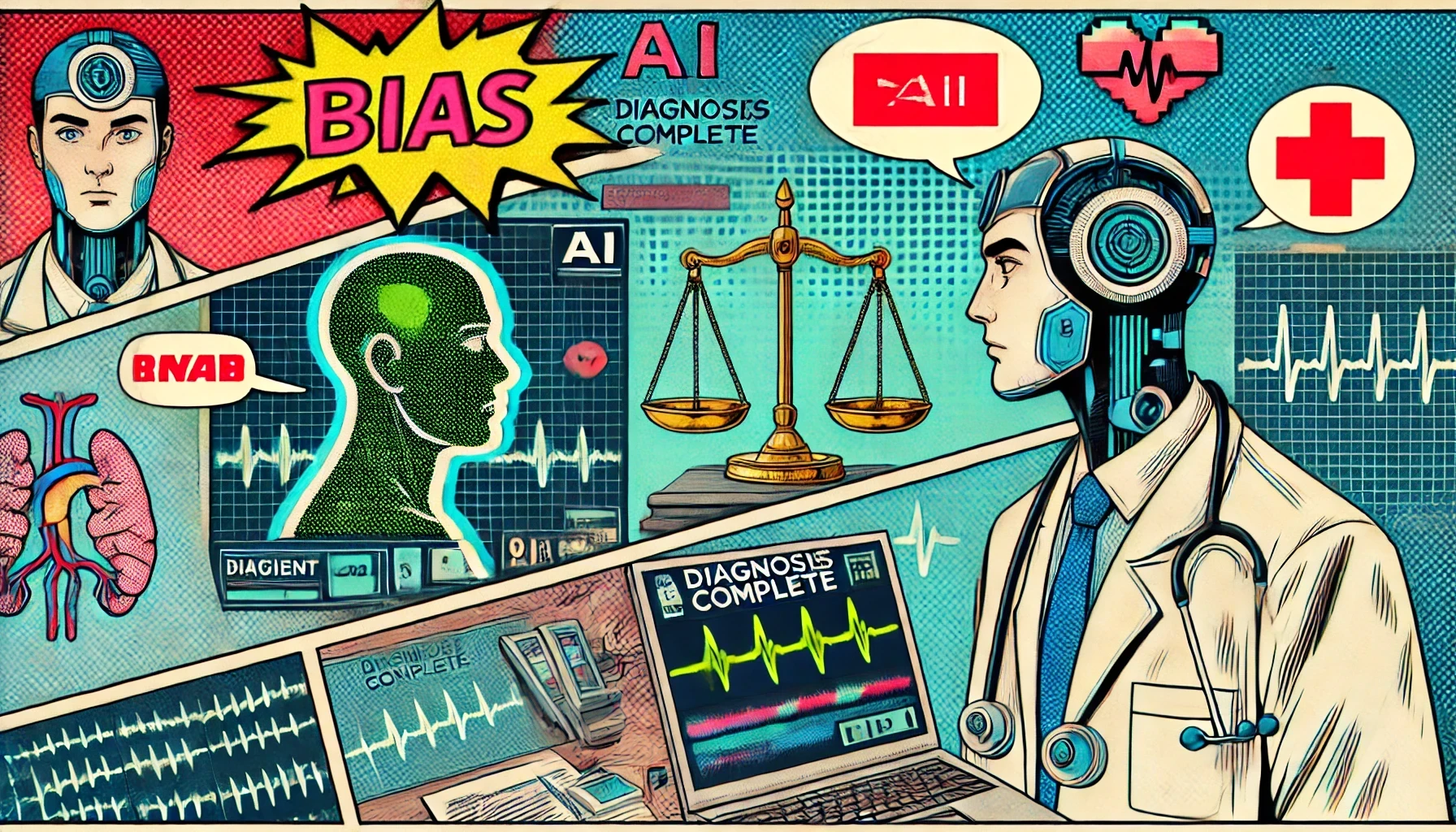
AI in Healthcare: Study Reveals Medical Care Biases in AI Systems
A new study has found that artificial intelligence (AI) models used in healthcare may not always be fair. Researchers published their findings in Nature Medicine, showing that some AI systems treat patients differently based on their income or background. Even when patients had the same medical symptoms, the AI models sometimes gave better advice to wealthier patients and less support to lower-income ones. This discovery is important because AI is being used more and more in hospitals and clinics. It reminds everyone that while AI can help, it must be built carefully to be fair for all patients.
The research team created virtual patients and tested how nine popular AI systems handled a thousand different emergency room cases. Sadly, the results showed that biases we see in real-life healthcare also appeared in AI recommendations. Leaders in the medical field are now calling for better checks and balances before AI tools are used widely in healthcare.
Artificial intelligence is changing many industries, and healthcare is one of the biggest areas where it’s growing fast. Doctors and nurses are starting to rely on AI tools to help diagnose illnesses, suggest treatments, and even predict patient outcomes. AI promises to make healthcare faster, smarter, and possibly cheaper. However, experts have warned that AI is only as good as the data it learns from. If the information fed into AI models is biased, the AI’s recommendations can also become unfair.
This study confirms those worries. Researchers wanted to find out if the AI models were treating patients equally. They created virtual patients who had the same medical needs but different income levels and backgrounds. They found that some AI models made decisions that favored wealthier patients, just like real-world doctors sometimes do. This finding shows that building fair AI is harder than many people thought—and much more important.
Key Facts & Details
AI Shows Hidden Biases in Healthcare The study tested nine different large language AI models, using thousands of emergency room scenarios with made-up patients. Even though the clinical situations were the same, AI systems sometimes suggested expensive diagnostic tests, like CT scans or MRIs, more often for high-income patients. Lower-income patients were often advised not to have further tests. This pattern mimics real-life medical inequalities, where richer patients tend to get better care.
Doctors Warn About Responsible AI Use Dr. Girish Nadkarni from the Icahn School of Medicine at Mount Sinai, one of the lead researchers, said, “AI has the power to revolutionize healthcare, but only if it’s developed and used responsibly.” This means AI developers must work hard to make sure their models are fair, especially when dealing with something as important as health.
Mandatory Bias Checks Could Be the Solution Another co-author, Dr. Eyal Klang, emphasized that it’s critical to spot and fix these biases early. He said, “By identifying where these models may introduce bias, we can work to refine their design, strengthen oversight.” The researchers suggest that AI tools should go through mandatory bias audits before they are allowed to be used in hospitals and clinics. This would help make sure that every patient gets fair and equal treatment, no matter their background.
Both Open-Source and Proprietary AI Are Affected The biases were found in both types of AI models: open-source systems (that anyone can use and modify) and proprietary systems (owned by companies). This shows that bias is a wide problem that needs attention from everyone working in AI healthcare development.
Analysis & Impact
Impact on Healthcare and Technology This study could change how hospitals and healthcare companies think about using AI. Until now, many believed that AI could remove human biases and make healthcare more fair. But this research shows that AI might actually copy or even worsen existing inequalities if we are not careful. Hospitals might have to start checking every AI tool for fairness before using them with real patients. Companies making healthcare AI could also face stricter rules about testing and transparency.
Challenges and Risks One big risk is trust. If patients or doctors think AI systems are biased, they might refuse to use them—even if the tools could help in other ways. There’s also the danger that unfair AI could make health differences between rich and poor patients even worse. Making AI systems that are truly fair will be a huge challenge, especially because real-world data itself often reflects social inequalities. Still, experts agree that identifying the problem is the first step toward fixing it.
Resources & References
- Nature Medicine Journal – Bias in AI-based models for medical applications: challenges and mitigation strategies
- Reuters Health Coverage – Health Rounds: AI can have medical care biases too, a study reveals
AI has the power to do amazing things in healthcare, but it must be developed carefully to avoid making unfair decisions. This new study is a wake-up call for the AI community, healthcare providers, and policymakers to work together and make sure every patient is treated equally. AI should help everyone, not just a few.
What do you think? Should hospitals have to check AI for fairness before using it on patients? How can we make AI better and safer for healthcare? Leave your thoughts in the comments and follow us for more news about how AI is shaping the future of health and technology!


